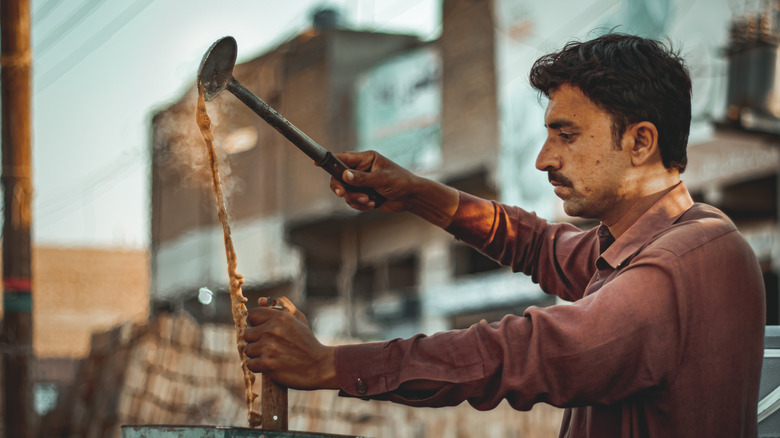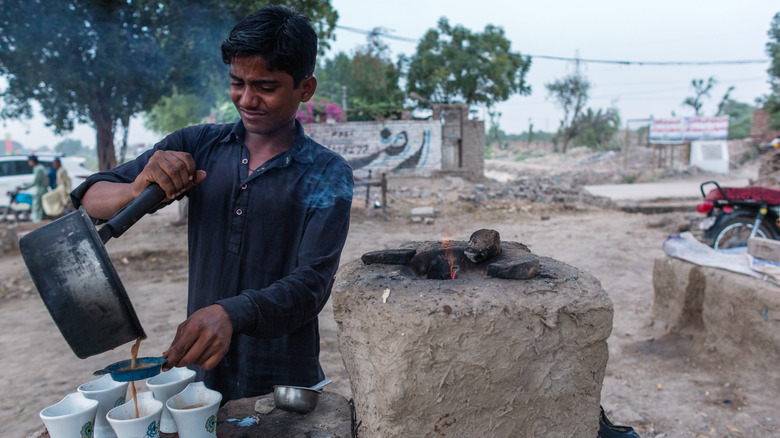Why Pakistan Is Begging Its Citizens To Drink Less Tea
When you think of tea, sitting down to a "high tea" in London or watching an episode of "Downton Abbey" might come to mind — but, think again. Pakistan is the largest importer of tea in the world (per NBC). In 2020, the government spent $646 million on tea imports alone, according to the Observatory of Economic Complexity. Most folks in Pakistan drink at least three cups of the stuff every day, per The Washington Post – but, if the Pakistani government has anything to say about it, they might not for long.
In a May 19 news conference, Information Minister Marriyum Aurangzeb announced the ban of non-essential imports in an effort to "control spiraling inflation, stabilize foreign exchange reserves, strengthen the economy, and reduce the country's reliance on imports," via CNN. Now, just one month later, it looks like tea could be next to go.
This week, Pakistan's Federal Planning Minister Ahsan Iqbal asked sippers nationwide to cut back tea consumption to just one or two cups per day, via The Washington Post. The reason? To turn Pakistan's economic crisis around. Sounds like a viable solution? Pakistani consumers don't seem to think so, either.
Spill the tea
Pakistans Federal Planning Minister, Ahsan Iqbal, announced a call to action, and folks have responded by taking to social media to call for his resignation. Dil Sher, owner of a tea stall in Islamabad, wonders whether next the government will be telling people to eat less, too, via The Washington Post. Sher doubts whether limiting tea is an impactful solution to the economic crisis at all — and many people seem to agree. Journalist Hameed Khan criticizes Pakistani "elites" for imposing unaffordable taxes on the working class instead of implementing changes in their own luxurious lifestyles, reports NBC.
Pakistan has seen substantial government turnover in recent months. In April, Shehbaz Sharif became Prime Minister after Imran Khan was removed by a no-confidence vote (per CNBC). Iqbal Singh Sevea of the National University of Singapore told the news outlet that Sharif's transition into power would likely be tumultuous, saying Sharif had "inherited an economy rattled by a current account deficit and inflation."
But, since then, Sharif has been the target of heavy criticism, particularly about his ability to handle the nation's finances. This month, the rupee hit an all-time low valuation against the U.S. dollar, at 78.24/$1, according to finance analytics platform Investing.com. Plus, in May, former Prime Minister Imran Khan claimed a conspiracy to remove him from power and initiate a "regime change" led to his wrongful termination, reports MSN. Pakistan's President Dr. Arif Alvi has since called for a thorough investigation into these allegations from an independent inquiry commission.

